How can we make it easier for those experiencing homelessness in Waterloo Region to access healthcare?
People who are homeless face many barriers to getting the mental, physical and addiction health care they need. Many don’t have primary care physicians or feel comfortable in medical settings.
This is an issue that has already been noticed by many health and social support agencies in Waterloo Region, who are finding creative ways to provide health care in places where people feel safe and welcomed.
Since the start of COVID-19, House of Friendship has been able to provide 24/7 Shelter, along with health-care and other supports, in its Shelter program, in a model known as ShelterCare.
This program has already seen tremendous success since it began in March 2020, showing that the vision for ShelterCare must continue, far beyond the current pandemic response.
Through the ShelterCare model, men and women who are struggling can receive health care from professionals who know their names, their journeys, and their potential. They can become healthy, find permanent housing, and end the cycle of homelessness.
“Have a nurse on site all the time, have a doctor come in once a week… [that] might help people.”
31-year old male participant at shelter, 2018.
What Inspires Us
Through the ShelterCare model, House of Friendship has seen impressive results, with men becoming healthier and housed faster than ever before.
Making ShelterCare a permanent reality in Waterloo Region will increase the health and life expectancy for those living in vulnerable conditions while reducing pressure on hospitals and emergency services.
“Recently, a gentleman who was homeless needed to have major heart surgery. He was discharged from hospital when he was stable, as any of us would be, however the only home he had to go to in order to continue his recovery was our Shelter. Staff did the best we could to make him feel comfortable, but our shelter building is not well equipped for this type of need.”
Shelter Worker
Why This Matters
- People who are homeless have difficulty accessing health care.
Those experiencing homelessness require health care, but do not always feel safe or welcomed in traditional medical settings. There is limited integration between shelters and hospitals, so some people can fall through the cracks. - Use of Emergency Services is high.
Many people experiencing homelessness do not have a primary care physician so they visit Emergency instead. Having more community-based health care will help reduce pressure on hospitals and first responders. - Opioid public health crisis.
The use of highly addictive, lethal opioids is now considered a public health crisis. Increased use of crystal meth has created a greater need for help for those struggling with addiction. - Limited affordable housing
Waterloo Region continues to lack affordable and supportive housing. The waiting list for community housing is over 7 years long and the waiting list for supportive housing is 2.5 years. - Safety and belonging
People feel increasingly isolated in our community. Providing appropriate health and social care will help more people in Waterloo Region feel like they are safe and they belong.
“ [If I could make a change in the healthcare system, it would be that we] need increased comfort with doctors so that you are able to open up. If it is just an open/closed book, people and things are missed. Need trust, need that person to talk to.”
58-year old male participant at shelter, 2018.



